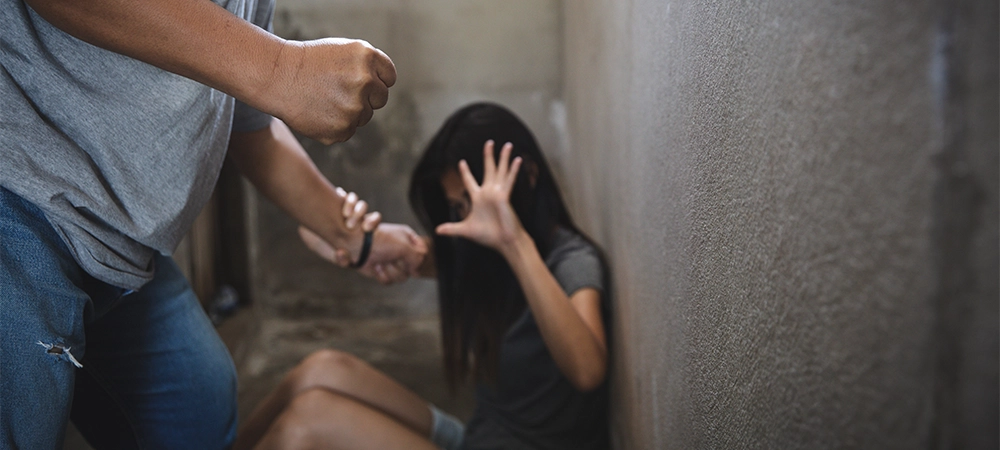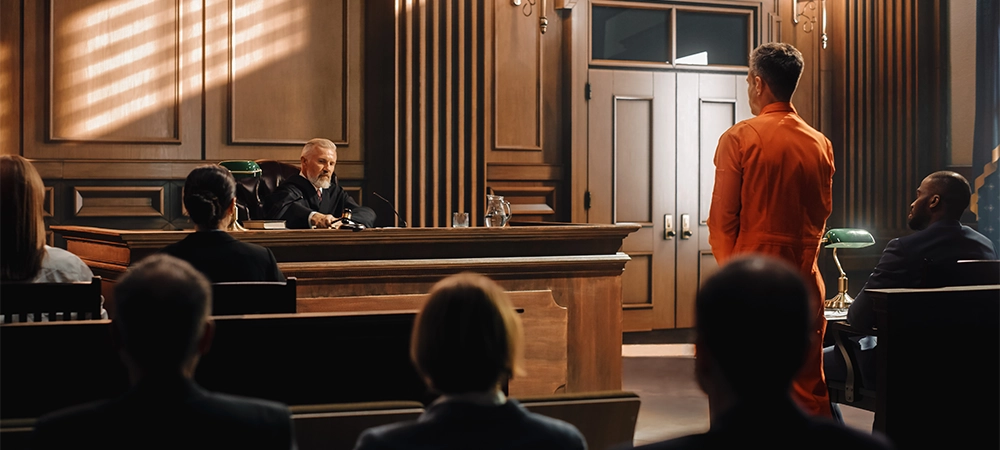If you’ve been charged with assault, or think you will be, it can be a scary experience. There are a lot of unknowns ahead and you no doubt have many questions. Thankfully, we’re here to guide you through the next steps.
Assault charges are governed by the Criminal Code of Canada and there are various types of assault you can be charged with. We’ll start by looking at what those types are before looking at all the stages from the arrest to the verdict and beyond. Let’s get started.
Types of Assault Charges
Not including sexually motivated crimes, there are three main types of assault to consider. These vary in severity, so the type you’re charged with is vitally important.
Simple Assault – This involves applying force to another without their consent but without significant injury. It can also include the threat of force without contact or impeding a person while carrying a weapon.
Assault Causing Bodily Harm – This is more serious as a physical injury has been caused. This injury has to be more than transient or trifling. This means a serious injury, but not one that would have long-term consequences.
Aggravated Assault – This is the more serious type of assault and can carry a heavy sentence. This involves wounding, maiming, disfiguring, or endangering the life of the victim.
Related Article: https://www.agpllp.ca/what-is-aggravated-assault/

The Arrest Process
Once suspected of assault, it’s likely that an arrest will take place. This involves the following steps:
Rights Upon Arrest – At the time of the arrest, you will be informed of your rights. This includes the right to remain silent and the right to legal counsel. Staying silent on the reason you’ve been arrested is always recommended until you have a lawyer.
Booking – You will be taken to a police station where your personal information will be taken, along with details of the alleged offence.
Bail Hearing – Depending on the severity of the assault, you may be held for a bail hearing. This determines whether or not you’ll stay in custody until your court date,
Legal Representation
It’s always advised to get an assault lawyer at the earliest opportunity. This will be available immediately after your arrest and you don’t need to say anything to the police until you have spoken to your lawyer.
They can help with the initial questioning, when making statements, and will represent you during bail hearings. This part of the representation can be crucial, but many won’t contact a lawyer until it’s time to make a court appearance.
During the process, a lawyer will help to represent you in a variety of ways. Of course, they can represent you in court, but their role is more important than that. They will advise you on a plea, help you to understand the charges and support you through the entire process. If you cannot afford a lawyer, you may be eligible for legal aid.
The Court Process
You won’t go straight from your arrest into a trail, as there are a couple of stages to go through first. Let’s look at what all the stages are after being charged with assault.
First Appearance – The first time you appear in court won’t be your trial. Instead, this will be where the charges are read, and you will enter a plea. If you plead not guilty, then a trial date will be set.
Pre-Trial – Before the trial, your lawyer may wish to negotiate with the prosecutor to resolve the case without a trial. An option here is to change your plea to guilty in exchange for a lesser charge. This may be suggested if the case against you is strong.
Trial – If you go to trial, the prosecution and the defence will present their evidence and arguments. Witnesses can be called, and you’ll have the opportunity to present your defence. The judge or jury will then deliver their verdict and you’ll either be acquitted or proceed to sentencing.
Sentencing – The sentence for assault varies hugely depending on the severity of the crime. For first-time simple assault, a non-custodial sentence is likely with fines, probation, and community service being more common. For aggravated assault, a guilty verdict will likely result in several years in prison.
Related Article: https://www.agpllp.ca/the-process-of-a-criminal-trial-in-ottawa/

Defences Against Assault Charges
There are many defences a skilled lawyer can use if you’re charged with assault. These include:
Self-Defense – Protecting yourself against harm, but it’s also a valid defence if defending property or another person.
Consent – Assault has to include a lack of consent. If the alleged victim consented to the contact, this can be a strong defence.
Lack of Intent – You can demonstrate that there was no intent to apply force to the alleged victim.
Alibi – If you can prove you weren’t at the scene, you’ll be acquitted.
Mistaken Identity – You can claim you were incorrectly identified as the perpetrator.
Along with defences, your lawyer can also highlight mitigating factors. These are circumstances that may lead to a reduced sentence. Examples can include provocation, remorse, rehabilitation, and stressful personal circumstances.
Final Thoughts
Being charged with assault in Ontario can be a daunting experience. However, knowing the next steps and getting expert legal advice can help to ease your mind about what’s to come. It’s important to follow any advice closely to give your case the best possible chance.
If you find yourself facing assault charges, then take action straight away. If you’re in need of legal representation, then give AGP LLP a call. We’ll be happy to take a look at your case and see how we can advocate on your behalf.





